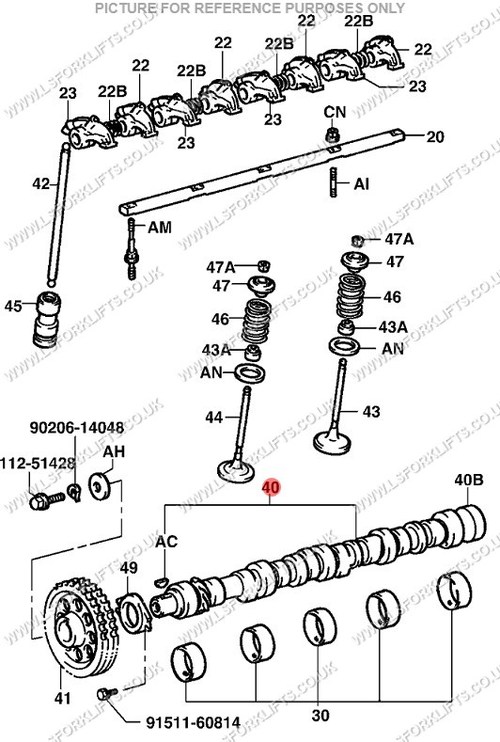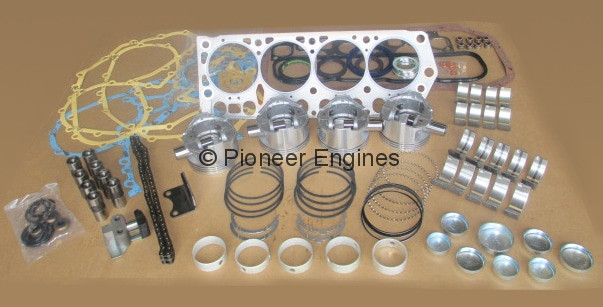Everything You Need to Know About the 4Y Engine and Its Performance
Everything You Need to Know About the 4Y Engine and Its Performance
Blog Article
Exploring the Different Sorts Of Engine: Which One Fits Your Demands?
Inner combustion engines continue to dominate due to their dependability, while electrical engines are obtaining traction for their sustainability. Crossbreed engines supply a versatile compromise, and diesel engines stand out for their power in demanding applications.

Internal Burning Engines
Internal burning engines (ICEs) are the backbone of contemporary transport, powering a large variety of automobiles from cars to planes. These engines operate the concept of converting gas into mechanical power via a series of regulated explosions within a burning chamber. The most usual kinds of ICEs include gasoline engines, diesel motor, and rotary engines, each created to meet certain performance and performance requirements.
Gasoline engines typically use trigger ignition, while diesel engines rely upon compression ignition, leading to distinct distinctions in fuel effectiveness and power result (4y engine). Rotary engines, or Wankel engines, use a compact design and smooth procedure, however are much less typically utilized in mainstream applications
ICEs have actually undergone significant developments in innovation, consisting of the introduction of turbocharging and fuel shot systems, which enhance total performance and efficiency. Regardless of their performance renovations, ICEs deal with increasing examination due to their environmental impact, especially pertaining to greenhouse gas emissions.
Electric Engines
As worries concerning ecological sustainability and nonrenewable fuel source reliance expand, electrical engines have become an engaging choice to interior combustion engines. These engines utilize electric motors powered by batteries or fuel cells, providing a cleaner and extra reliable ways of propulsion.
One of the key advantages of electrical engines is their reduced discharges. Unlike conventional engines that burn nonrenewable fuel sources, electric engines produce absolutely no tailpipe discharges, dramatically reducing air pollution and adding to improved public health. In addition, the effectiveness of electric motors frequently exceeds that of internal burning engines, converting a better percentage of energy from the source of power into useful energy for activity.
Electric engines are likewise notable for their silent operation, making them suitable for urban settings. 4y engine. The simplicity of their layout results in less moving components, which can cause reduced upkeep expenses and increased dependability over time
However, obstacles remain, consisting of battery manufacturing impacts, billing infrastructure, and variety constraints. In spite of these difficulties, the growing investment in electrical vehicle innovation and renewable resource sources points toward an encouraging future for electric engines, positioned to play a crucial duty in the transition towards sustainable transport.
Crossbreed Engines
Blending the advantages of both conventional and electrical inner combustion engines, hybrid engines represent a versatile solution in the pursuit for reliable and sustainable transportation. These engines integrate a gasoline or diesel engine with an electrical motor, permitting boosted gas performance and go to website reduced discharges compared original site to traditional lorries.
Crossbreed engines run in numerous modes, using the electrical motor for low-speed driving and the inner burning engine for greater rates or when even more power is needed. This dynamic operation not only enhances fuel economic climate however likewise adds to a smoother driving experience. Regenerative braking is another important function, catching energy normally shed during braking and rerouting it to reenergize the battery.

As customers significantly prioritize eco-friendliness, hybrid engines stand apart as pop over to this web-site a practical selection, using an effective equilibrium of performance, efficiency, and environmental duty. This adaptability makes them appropriate for urban travelling and long-distance travel alike.
Diesel Motor
Efficiency and power are trademarks of diesel motor, which have actually long been favored for their effectiveness and fuel economy. These engines run on the principle of compression ignition, where air is compressed to a high temperature level before gas is injected, igniting it without the demand for ignition system. This procedure makes it possible for diesel engines to accomplish higher thermal performance contrasted to fuel engines, equating right into much better gas mileage and reduced co2 discharges.
Diesel motor are specifically well-suited for durable applications such as vehicles, buses, and commercial equipment, where torque and longevity are critical. Their style typically includes stronger elements to withstand the greater pressures generated during operation, leading to longer solution life and lowered maintenance expenses.

Alternative Fuel Engines
While diesel engines have lengthy controlled the landscape of durable source of power, different fuel engines are getting traction as practical alternatives for an extra lasting future. These engines use a variety of fuels, such as pressed gas (CNG), hydrogen, ethanol, and gas, intending to minimize greenhouse gas emissions and dependence on nonrenewable fuel sources.
One significant benefit of alternate fuel engines is their possible to reduced carbon footprints. CNG engines emit less pollutants contrasted to traditional diesel engines, making them ideal for metropolitan transportation systems and fleets seeking to improve air quality. Ethanol, stemmed from biomass, not only minimizes emissions however likewise sustains agricultural economic situations.
Hydrogen gas cells stand for an advanced development in this realm, offering zero-emission power with a chemical response between hydrogen and oxygen. Nevertheless, challenges such as facilities advancement and manufacturing costs stay barriers to widespread adoption - 4y engine.
Final Thought
Inner burning engines provide dependability, while electric engines prioritize sustainability and lowered maintenance. Crossbreed engines incorporate the benefits of both, improving effectiveness, whereas diesel engines offer superior power and torque for heavy-duty applications.
Crossbreed engines use a flexible concession, and diesel engines stand out for their power in requiring applications. The most usual kinds of ICEs consist of gasoline engines, diesel engines, and rotary engines, each designed to fulfill certain performance and efficiency demands.
Unlike typical engines that shed fossil gas, electric engines generate zero tailpipe exhausts, dramatically reducing air pollution and adding to enhanced public health.Crossbreed engines run in several settings, using the electrical motor for low-speed driving and the interior combustion engine for greater rates or when even more power is needed. Hybrid engines combine the benefits of both, enhancing performance, whereas diesel engines supply superior power and torque for sturdy applications.
Report this page